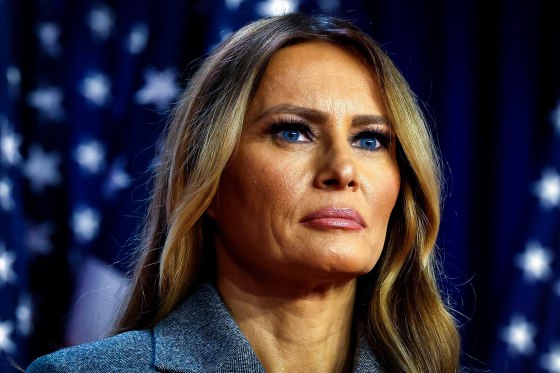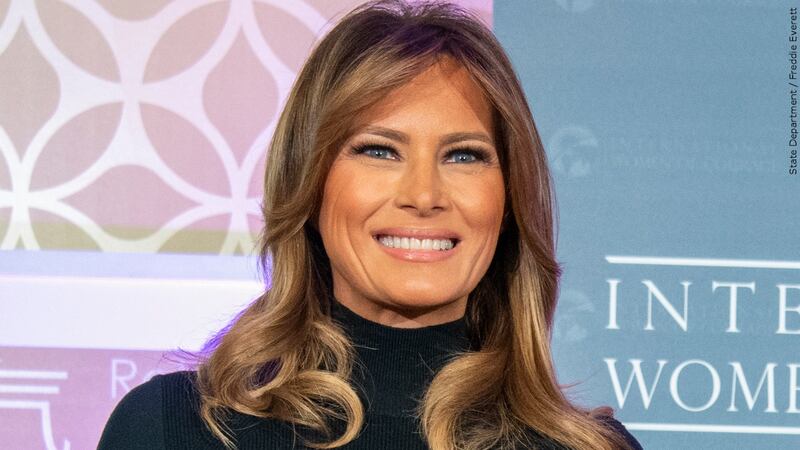Melania Trump, the former First Lady of the United States, has drawn public attention for many reasons, including questions about her immigration journey to the U.S. A key point of discussion has been her receipt of the EB-1 visa in 2001—a visa category sometimes nicknamed the “Einstein visa” because it is reserved for individuals with “extraordinary ability.”
The debate over whether she qualified under these criteria has resurfaced periodically, including in recent congressional hearings. To understand the issue clearly, it helps to review the visa’s requirements, Melania Trump’s professional background, and how U.S. immigration law has historically treated applicants in creative fields such as modeling.

What Is the EB-1 Visa?
The EB-1 visa is an employment-based, first-preference immigrant visa. According to U.S. Citizenship and Immigration Services (USCIS), it is available to individuals who can demonstrate “extraordinary ability” in fields such as the sciences, arts, education, business, or athletics.
Officially, USCIS states:
“You must be able to demonstrate extraordinary ability in the sciences, arts, education, business, or athletics through sustained national or international acclaim. Your achievements must be recognized in your field through extensive documentation.” (USCIS EB-1 Guidelines)
Examples of people who qualify include Pulitzer Prize winners, Oscar winners, Olympic athletes, or others with a comparable level of accomplishment.
However, USCIS also notes that the term “extraordinary ability” is broader than simply these marquee awards. Applicants must meet at least 3 of 10 specific criteria (such as evidence of published work, significant recognition in the field, high salary compared to peers, etc.) to establish eligibility.
Melania Trump’s Immigration Path
According to reporting from Newsweek and The Washington Post, Melania Trump arrived in the United States in 1996, initially on a tourist visa, and later worked under a series of H-1B work visas for models. She was sponsored by the modeling agency Metropolitan Models, co-owned by Paolo Zampolli.
In 2001, she reportedly obtained the EB-1 immigrant visa, granting permanent residency (a green card) in the United States. This visa category allowed her to reside and work in the U.S. permanently before eventually gaining U.S. citizenship in 2006.
Melania Trump’s lawyer at the time, Michael Wildes, confirmed in interviews that she received the EB-1 visa but did not provide full details of the petition. (Source: Newsweek)

Why the Visa Has Been Criticized
Critics have questioned how Melania Trump qualified for the EB-1 visa, arguing that she did not hold major awards such as a Pulitzer Prize or an Olympic medal, which are often used as examples of qualifying achievements.
Texas Representative Jasmine Crockett, for example, recently questioned the integrity of the process during a House Judiciary Committee hearing. She highlighted the visa’s intended use for individuals with “significant achievement” and suggested skepticism about whether Melania Trump’s modeling career met that standard.
Such questions have fueled public debate about immigration standards and perceived fairness in the system.

How Models May Qualify for EB-1
Fact-checking organizations, including Snopes, have examined these criticisms. Snopes points out that while the EB-1 visa is intended for “extraordinary ability,” the law does not limit eligibility to Nobel Prize or Olympic winners alone.
Models and other performers can qualify if they demonstrate sustained national or international acclaim with strong evidence meeting USCIS criteria. Examples of potential evidence include:
-
Major media recognition
-
Leading roles in distinguished organizations or productions
-
High salaries compared to peers in the field
-
Original contributions of major significance
-
Commercial success in performing arts
Snopes found that other models have qualified for visas requiring extraordinary ability, such as the EB-1 and the O-1 visa (a non-immigrant visa category with similar but temporary criteria). (Source: Snopes)
Although it is impossible to verify the exact evidence presented in Melania Trump’s 2001 EB-1 petition (as immigration records are private), Snopes and other outlets note there is precedent for models qualifying if they document their achievements effectively.

U.S. Immigration Practice for Artists and Performers
The USCIS explicitly states that artists and performers are eligible for the EB-1 visa if they meet the evidence requirements.
Immigration attorneys have explained in media interviews that the law allows successful fashion models with international recognition, extensive media exposure, and well-paid contracts to argue they have “extraordinary ability.”
While critics may disagree about whether Melania Trump’s career met those standards, the process itself does not exclude models. The Washington Post in a 2018 report confirmed that while EB-1 is known for admitting top academics and scientists, “models with significant success can qualify.” (Source: The Washington Post)

Conclusion: A Controversy with Legal Nuance
Melania Trump’s EB-1 visa remains a subject of public interest and debate. However, the evidence shows that:
-
The EB-1 visa criteria include—but are not limited to—Nobel laureates or Olympic medalists.
-
Artists and models can qualify if they meet specific, documented criteria.
-
U.S. immigration law has granted EB-1 visas to models in the past.
-
While the details of Melania Trump’s application are confidential, the category was legally available to her profession.
This demonstrates that the question of whether she “deserved” the visa is complex. It depends not on celebrity status alone but on whether her petition included sufficient evidence under the law.
Ultimately, the controversy underscores broader debates about immigration policy, eligibility standards, and fairness—issues that extend far beyond any one applicant’s story.
Sources
-
U.S. Citizenship and Immigration Services – EB-1 Visa Requirements
-
Newsweek – Fact Check: Did Melania Trump Get ‘Einstein’ Visa?
-
Snopes – Did Melania Trump Receive the ‘Einstein’ Visa?
-
The Washington Post – Inside Melania Trump’s Complicated Immigration Story
